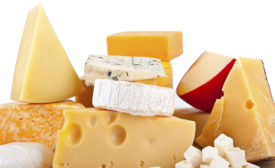Home » Keywords: » sodium reduction
Items Tagged with 'sodium reduction'
ARTICLES
Kerry Health and Nutrition Institute Releases 2025 F&B Trends
‘Sustainable Nutrition’ will shape the future of food.
November 14, 2024
Wisconsin Center for Dairy validates new rapid sodium testing method for cheese
The need for such a technology is due to the increased public interest in reducing sodium intake, which has led many cheese manufacturers to begin using sodium replacers.
September 21, 2016
Elevate your expertise in refrigerated and frozen foods with unparalleled insights and connections.
Get the latest industry updates tailored your way.
JOIN TODAY!Copyright ©2025. All Rights Reserved BNP Media.
Design, CMS, Hosting & Web Development :: ePublishing


